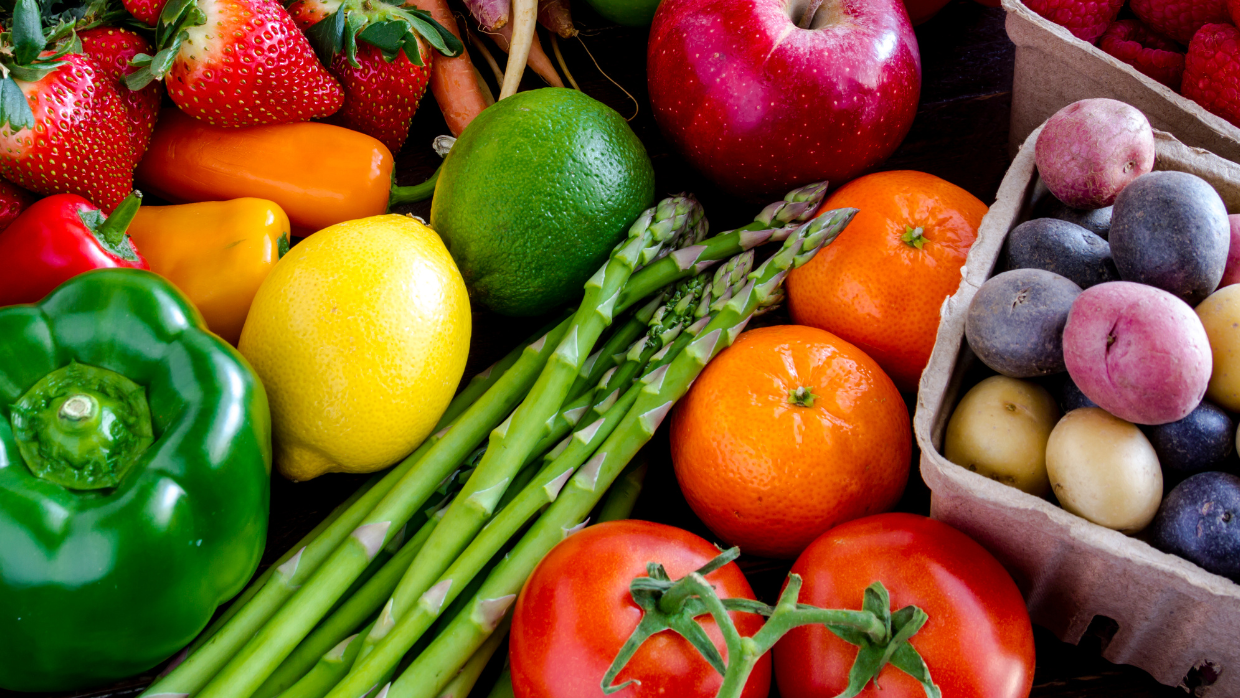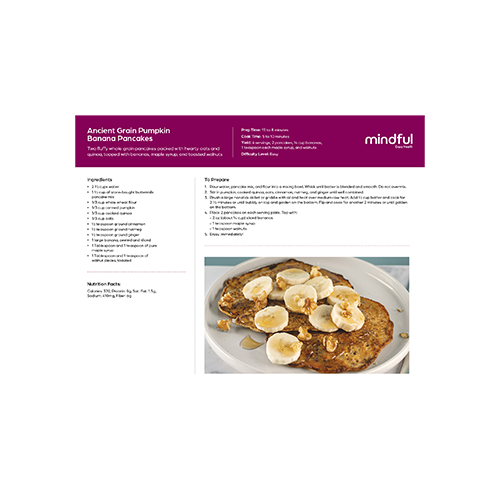Corporate Responsibility
Growing Local, Supporting Communities: Sodexo’s Northeast Impact

 Athletes around the world have increasingly been more interested in the benefits of a plant-based diet for a variety of reasons, from climate to performance. Many athletes ask dietitian, “how can I successfully fuel for performance when eating sustainably?”
Athletes around the world have increasingly been more interested in the benefits of a plant-based diet for a variety of reasons, from climate to performance. Many athletes ask dietitian, “how can I successfully fuel for performance when eating sustainably?”
Please note: As an athlete or individual who participates in high-level athletic workouts, if you currently follow or are considering a plant-based athlete diet, we strongly recommend speaking to a professional to ensure you are getting all necessary nutrients, vitamins and minerals in your diet. A sports dietitian is a great resource.
Research shows that in addition to climate benefits, a plant-based athlete diet may have potential health benefits such as reduced inflammation, improved muscle glycogen stores and lower body fat percentage/leaner body composition. This is all related to a greater intake of whole foods, including fruits, vegetables, grains, legumes and lean proteins. There are four aspects of sustainable eating for performance that we will dive into in this article.
Protein is an essential nutrient to be mindful of when choosing to eat plant-based, especially if your goal is to build muscle, perform well and properly recover from training. Many athletes believe animal foods are the only high-protein food sources, but that’s a myth. The key is to ensure you are consuming complete proteins. Complete proteins contain all nine essential amino acids that the body cannot produce and must obtain through diet, while incomplete proteins lack one or more of these amino acids. Incomplete proteins can be paired together to form a complete protein, and these pairings can be consumed at different times during the day. Eating a variety of plant-based proteins ensures all essential amino acids are covered. Now let’s get into carbohydrates, the fuel to your fire!
Carbohydrate needs depend on your activity level. It is usually easy for plant-based eaters to consume enough carbohydrates since their diets are high in fruits, vegetables, grains and starches. However, there are some key tips to remember for peak performance. Choose whole grains instead of refined grains with meals for sustained energy. This is essential to get enough calories, fiber and micronutrients. Consume simple carbohydrates before, during or immediately after training for quick energy.
Fat is also an essential nutrient. Many plant-based proteins naturally contain healthy fats, including tree nuts, peanuts, seeds and nut butters, so it can be beneficial to choose these whole food fat sources over liquid oils at times. Cooking with oils that contain healthy fats, like olive, avocado, canola and coconut, is recommended. However, individuals following a plant-based diet need these in less quantities because the recommended amount of fat is often met through plant-based protein foods. Healthy fats lubricate joints, reduce inflammation, speed muscle recovery, maintain good blood pressure and cardiovascular health, enhance cognitive function and support mental health and mood. Yes, you read that right, healthy fats will help you feel less sore from workouts!
Micronutrients are the vitamins and minerals that help macronutrients do their job. When consuming a plant-based diet, the following micronutrients are important to consider; vitamin B-12, vitamin D, zinc, calcium, iodine, iron, magnesium, potassium and selenium. If you have further questions about these integral vitamins and minerals, reach out to a sports dietitian to learn more.
What about the bigger picture? Listening to your body is more important than sticking to a specific number when considering caloric intake since calorie needs are different for everyone. We recommend focusing on your body’s internal regulation signals, including hunger and satiety cues to meet your daily calorie needs. To achieve a calorie deficit and to be lean, fit and healthy, one can simply eat until satisfied — rather than full or overfull — without the need for meticulous calorie tracking. It is crucial to understand, plant-based athletes may need to focus more on getting adequate calories since plant-based foods tend to be naturally lower in calories and higher in fiber (which may skew hunger cues away from true calorie needs).
For more information on sustainable eating, visit Sustainable Eating for People and Planet.
Diane Johnson, MS, RDN, CSSD, Sodexo Campus Registered Dietitian
Eric Finley MS, RD, LD, CSSD, Sodexo Campus Registered Dietitian
Megan Dennis, MS, RDN, Sodexo Campus Registered Dietitian
These Ancient Grain Pumpkin Banana Pancakes are a warm and nourishing way to start your day. Made with oats, quinoa, pumpkin and spices, and topped with banana, maple syrup and toasted walnuts, this easy recipe is perfect for athletes and anyone looking for a wholesome boost.

Growing Local, Supporting Communities: Sodexo’s Northeast Impact

Rooted in Nature: A Sodexo Employee’s Journey to Sustainability

How the Foodservice Industry Is Driving the Sustainable Food Transition

Empowering Change: An Employee’s Dedication to Sustainable Food Systems
